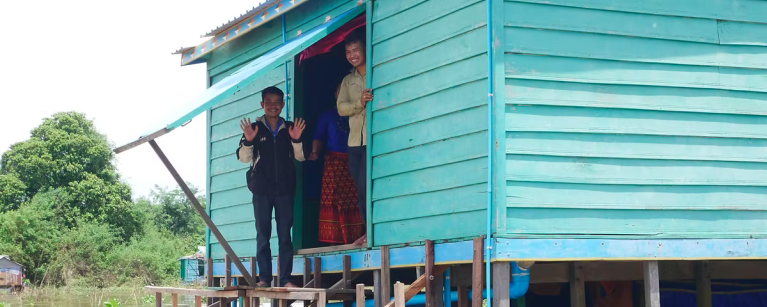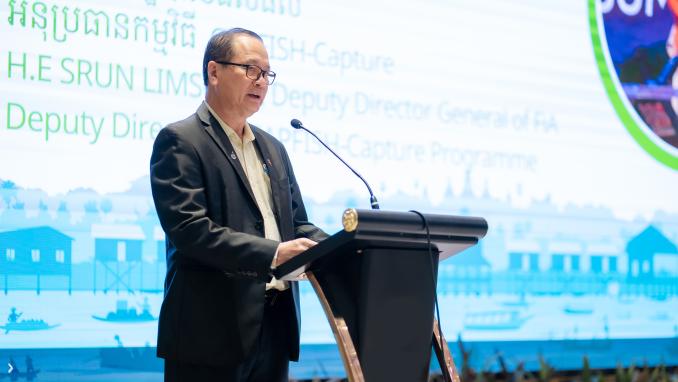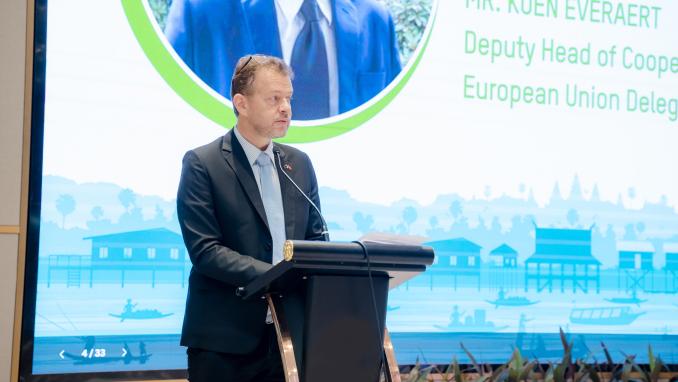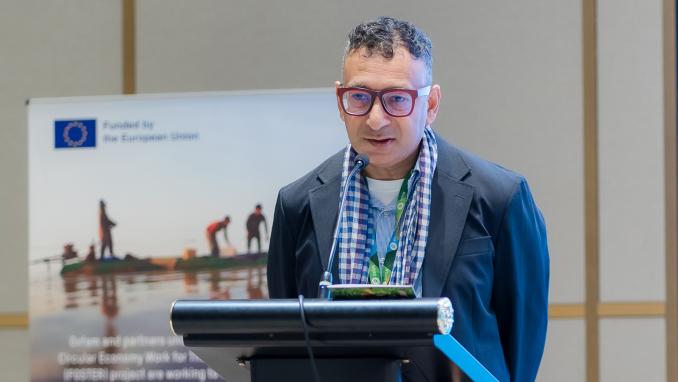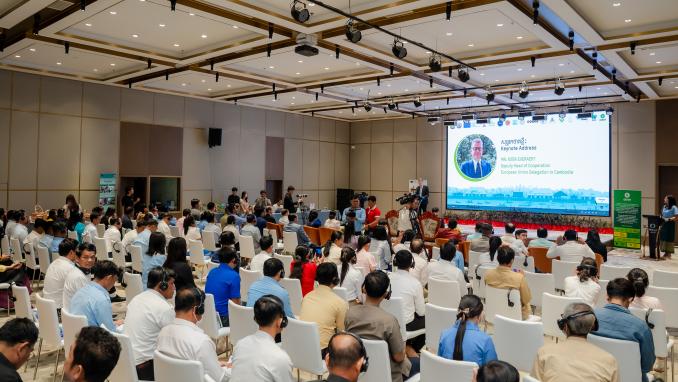Context
Tonle Sap Lake is confronting severe challenges, including rising poverty, food insecurity, and environmental decline, exacerbated by climate change, illegal overfishing, deforestation, and upstream dam construction. These pressures have also led to poor health and education outcomes, particularly for women and children in the region.
The EU-CAPFISH/FOSTER Project (Lot 1) addresses these issues by empowering members of Community Fisheries (CFIs) in floating villages through livelihood diversification. The project fosters community-led entrepreneurship and employment in ecotourism, sustainable agriculture, and renewable energy while simultaneously enhancing WASH (Water, Sanitation, and Hygiene), health, and education services.
After 3.5 years of implementation, the initiative has made substantial progress in improving sustainable livelihoods and access to critical services for fishing communities in the Tonle Sap Biosphere Reserve (TSBR), with notable achievements across key focus areas.
Key Achievements
WASH
- Safe Water Access: Established 3 community-owned water kiosks, providing safe drinking water to 1,930 people and generating USD 250/month income for operators. Supplied free water to 3,200 students in 10 schools.
- Sanitation: Built 164 floating/sky latrines and trained 15 local operators. Improved WASH facilities in 87 schools (20,030 students), installing 260 handwashing sinks, 113 water filters, and 70 latrine units. Conducted sanitation training for 165 teachers and 48 officials.
- Waste Management: Recycled 4,000 kg of plastic into eco-bricks, earning USD 31,199 for a local cooperative. 360 waste containers were distributed, and 5 waste management committees were formed.
EDUCATION OUTCOMES
- Nutrition & Scholarships: Supported 2,260 students through a school feeding program and provided scholarships/materials to 8,530 students, including multilingual classes for 150 Vietnamese children.
• Infrastructure: Built/rehabilitated 72 classrooms in 16 schools, benefiting 20,030 students. Trained teachers on blended learning and implemented an early warning system for 2,101 at-risk students.
• Advocacy: Held 116 events (10,000+ participants) on enrollment and children’s rights, aligning with national education policies.
GREEN ECONOMY
• Bee Raising: Trained 19 members to produce 1,400 liters of honey (USD 6,000 income).
• Ecotourism: Six CBET groups hosted 5,000+ tourists, earning 4 million Riel for conservation. Launched the Tonle Sap Ecotourism Network (TEN).
• Smart Agriculture: Trained 118 farmers in organic techniques, introducing floating gardens for flood resilience.
• Women’s Empowerment:
- Plastic recycling: 12 women earned USD 150–200/month.
- Fish processing: 69 women increased income to USD 180–250/month.
- Water hyacinth crafts: Members earned USD 1,300/year.
• Energy & Markets: Installed solar systems for 52 off-grid households. Linked farmers to markets via OVOP, boosting sales of honey, rice, and handicrafts.
CROSS-CUTTING IMPACT
• Gender & Disability: Conducted 17 biodiversity trainings (264 participants) and integrated disability-inclusive assessments. Women’s income/assets rose by 57% post-intervention.
• Sustainability: Promoted eco-friendly practices (e.g., eco-bricks, CBET) while strengthening community resilience.
